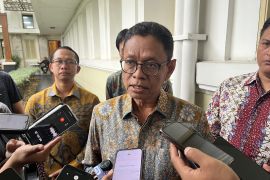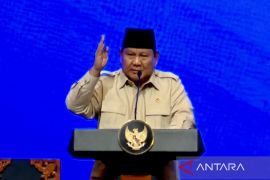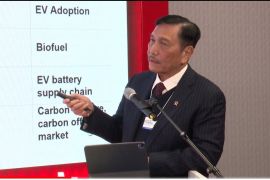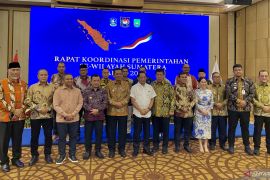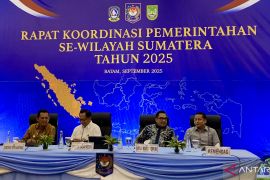Deficit in fuel oil supply will continue to exist as long as the production capacity of the refineries is not increased.Jakarta (ANTARA News) - Indonesia is expected to import up to 575 thousand barrels of fuel oil per day (bpd) to cover its supply deficit in 2015.
Agus Cahyono Adi, the director of oil and gas program development of the energy and mineral resources ministry, stated here on Friday that the deficit in fuel oil supply will continue to exist as long as the production capacity of the refineries is not increased.
"Fuel consumption is increasing while the production of refineries tends to be stagnant, and so, unless the capacity is increased, shortage will continue to occur until the next few years," he pointed out.
Increasing the capacity of the current refineries and building new refineries are the two schemes being implemented by the government so far to increase the supply, he stated.
"A new refinery can be built using the national budget, through public-private cooperation, or fully by private parties," he noted.
With regard to public-private partnership, he stated that the government has already conducted a study regarding its technical and socio-economic feasibility as well as refinery configuration.
The government has also conducted market consultations in Singapore in February to attract investors who will later cooperate with the state-owned oil company, Pertamina.
Investors in the public-private partnership scheme are required to bring high technology, to be able to ensure crude supply, produce petrochemicals, and have professional human resources, he emphasized.
He remarked that the government will provide easy licensing and various incentives, land, and facilities to them, while Pertamina will offtake the production of the refinery, with a capacity of 300 thousand bpd.
He stated that the government has already set aside 500 hectares of land in Bontang, East Kalimantan, for the project.
In the meantime, the government has also given permission to Pertamina to build refineries in other regions, if possible.
Initially, the government was keen to build a refinery by itself but finally decided to cooperate with private parties under the public-private partnership scheme, he revealed.
Pertamina has, so far, made preparations to increase the capacity of its current refineries from 820 thousand bpd to 1.68 million bpd by 2018-2019.
The Refinery Development Master Plan (RDMP) program will be implemented in five refineries with an investment estimated to reach around US$25 billion, he stated.
On December 10, 2014, Pertamina signed a memorandum of understanding (MoU) with the world-class oil company Saudi Aramco to increase the capacity of three refineries located in Dumai, Riau, Cilacap in Central Java, and Balongan in West Java.
It has also signed an MoU with Sinopec for increasing the capacity of its refinery in Plaju, South Sumatra and with JX Nippon Oil & Energy for the refinery in Balikpapan, East Kalimantan.
Under the RDMP program, the capacity of the refinery in Dumai is expected to increase from 140 thousand bpd to 300 thousand bpd and that in Cilacap from 270 thousand bpd to 370 thousand bpd, in Balikpapan from 220 thousand bpd to 360 thousand bpd, and in Balongan from 100 thousand to 350 thousand.
In the meantime, regular gasoline production is expected to increase 3.3 times from 190 thousand bpd to 630 thousand bpd, diesel fuel by 2.4 times from 320 thousand bpd to 70 thousand and avtur from 50 thousand bpd to 120 thousand bpd.
Besides this, fuel oils production of petrochemicals such as propylene and polypropylene will increase 9.5 times from 200 thousand to 1.79 million tons a year, he noted.
Currently, Indonesia has eight refineries with a capacity of 1.166 million bpd.
Six of them belong to PT Pertamina: a refinery located in Dumai, Riau, with a capacity of 177 thousand bpd; Plaju, South Sumatra, 128 thousand bpd; Balongan in West Java 125 thousand bpd; Cilacap in Central Java 348 thousand bpd; Balikpapan in East Kalimantan 260 thousand bpd; and Kasim in Papua 10 thousand bpd.
In the meantime, the refinery operated by PT Trans Pacific Petrochemical Indotama has a capacity of 100 thousand bpd, whereas that operated by Tri Wahana Unversal has a capacity of 18 thousand bpd.
With a total capacity of 1.166 million bpd, the refineries, however, have now been able to produce around 800 thousand bpd. (*)
Editor: Heru Purwanto
Copyright © ANTARA 2014
